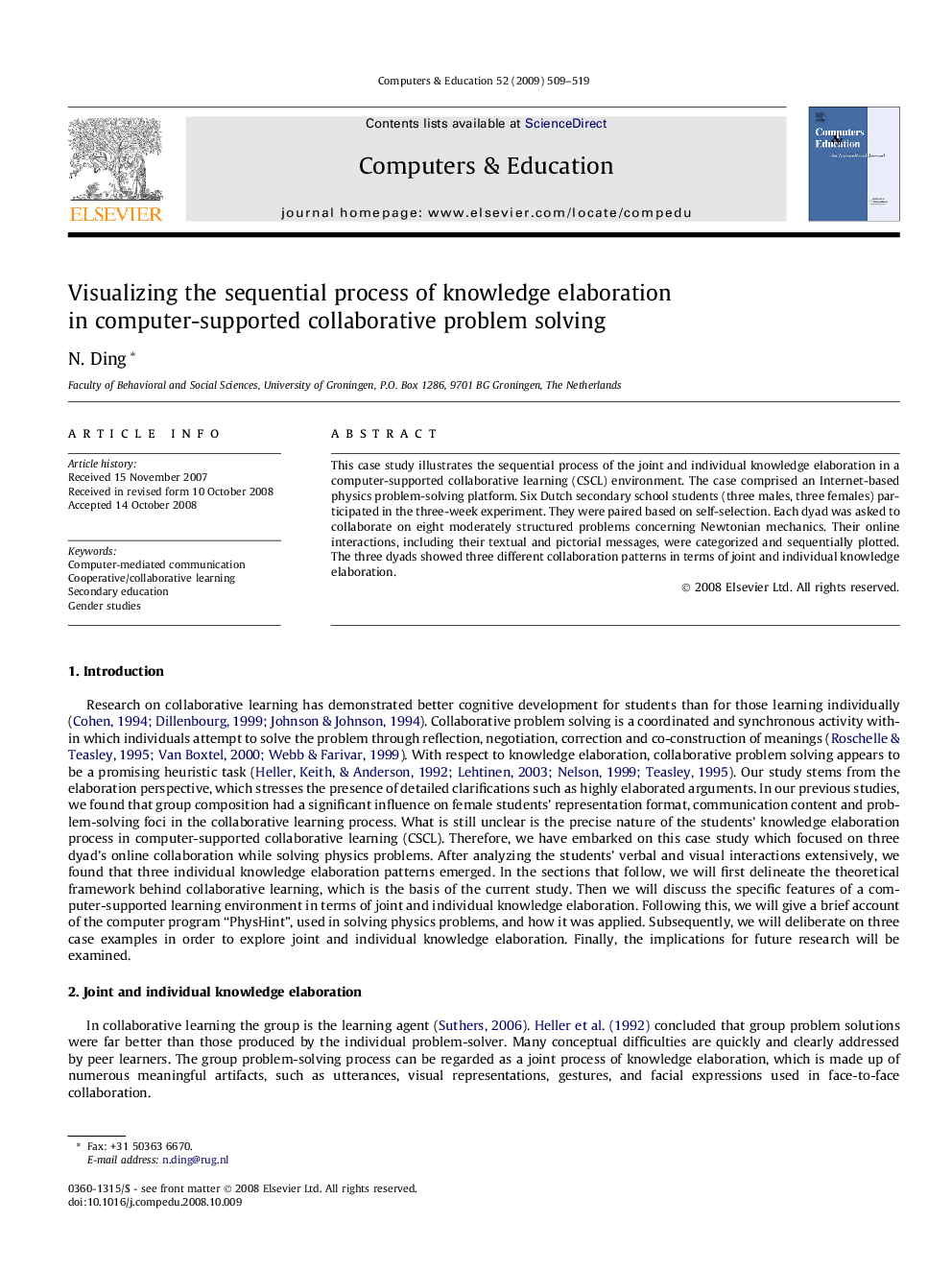| Article ID | Journal | Published Year | Pages | File Type |
|---|---|---|---|---|
| 349080 | Computers & Education | 2009 | 11 Pages |
Abstract
This case study illustrates the sequential process of the joint and individual knowledge elaboration in a computer-supported collaborative learning (CSCL) environment. The case comprised an Internet-based physics problem-solving platform. Six Dutch secondary school students (three males, three females) participated in the three-week experiment. They were paired based on self-selection. Each dyad was asked to collaborate on eight moderately structured problems concerning Newtonian mechanics. Their online interactions, including their textual and pictorial messages, were categorized and sequentially plotted. The three dyads showed three different collaboration patterns in terms of joint and individual knowledge elaboration.
Keywords
Related Topics
Social Sciences and Humanities
Social Sciences
Education
Authors
N. Ding,
